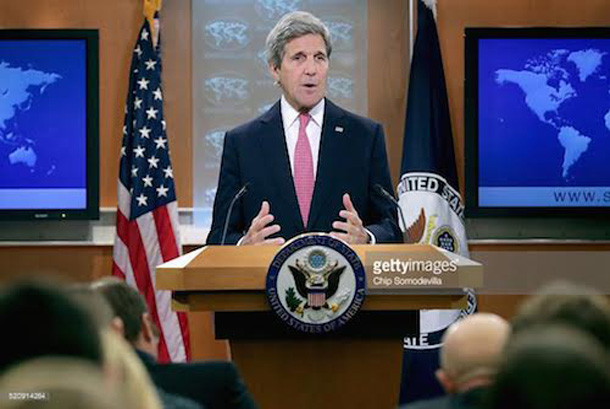 Dharamshala — The U.S. State Department released its annual human rights report on Tibet and China on April 13th, 2016. While the report confirmed its stance that Tibet remains a part of China, it witnessed and reported gross violations of human rights, as Chinese authorities "engaged in severe repression" in Tibet.
Dharamshala — The U.S. State Department released its annual human rights report on Tibet and China on April 13th, 2016. While the report confirmed its stance that Tibet remains a part of China, it witnessed and reported gross violations of human rights, as Chinese authorities "engaged in severe repression" in Tibet.
The report noted the Chinese authority's strict control over the area, making it difficult to ascertain the extent of human rights violations, stating "the Chinese government harassed or detained Tibetans who spoke to foreign reporters, attempted to provide information to persons abroad, or communicated information regarding protests or other expressions of discontent through cell phones, e-mail, or the internet," making information regarding the TAR hard to come by.
Press and media freedom appears nearly nonexistent, as the report noted, "reporting from 'Tibet proper remains off-limits to foreign journalists,' according to an annual report by the Foreign Correspondents Club of China. According to the same report, many foreign journalists were told also that reporting in Tibetan areas outside the TAR was 'restricted or prohibited.'"
The report went on to include many cases of arbitrary or unlawful detainment, disappearances, torture, and harassment, including the "11 Tibetan writers and intellectuals and 10 Tibetan singers who have faced imprisonment and repression" in an apparent attempt to stamp out Tibetan cultural pride.
Trial procedures also came in to question, as under Chinese law, prisoners have the right to request a meeting with an appointed attorney, a right that was not honored for most Tibetan prisoners. In addition to the lack of legal representation, "in cases that authorities claimed involved 'endangering state security' or 'separatism,' trials often were cursory and closed."
The State Department highlighted the "strict curtailing of civil rights" particularly regarding freedom of speech and expression, noting examples of those severely punished for expressing discontent or spreading information regarding a protest, including several examples of Tibetans who were arrested and imprisoned for peaceful protests.
On self immolation by Tibetans, the report said, "Self-immolators reportedly continued to see their acts as protests against political and religious oppression. The Chinese government implemented policies that punished friends, relatives, and associates of self-immolators," who are by law charged with "intentional homicide and subjected to punishment."
Overall, the report summarized the repression in the Tibetan populated regions as continued to fail both international and Chinese law as, "the government's respect for, and protection of, human rights in the TAR and other Tibetan areas remained poor. Under the professed objectives of controlling border areas, maintaining social stability, and combating separatism, the government engaged in the severe repression of Tibet's unique religious, cultural, and linguistic heritage by, among other means, strictly curtailing the civil rights of China's Tibetan population, including the freedoms of speech, religion, association, assembly, and movement."


![Tibet has a rich history as a sovereign nation until the 1950s when it was invaded by China. [Photo: File]](/images/stories/Pics-2024/March/Tibet-Nation-1940s.jpg#joomlaImage://local-images/stories/Pics-2024/March/Tibet-Nation-1940s.jpg?width=1489&height=878)















